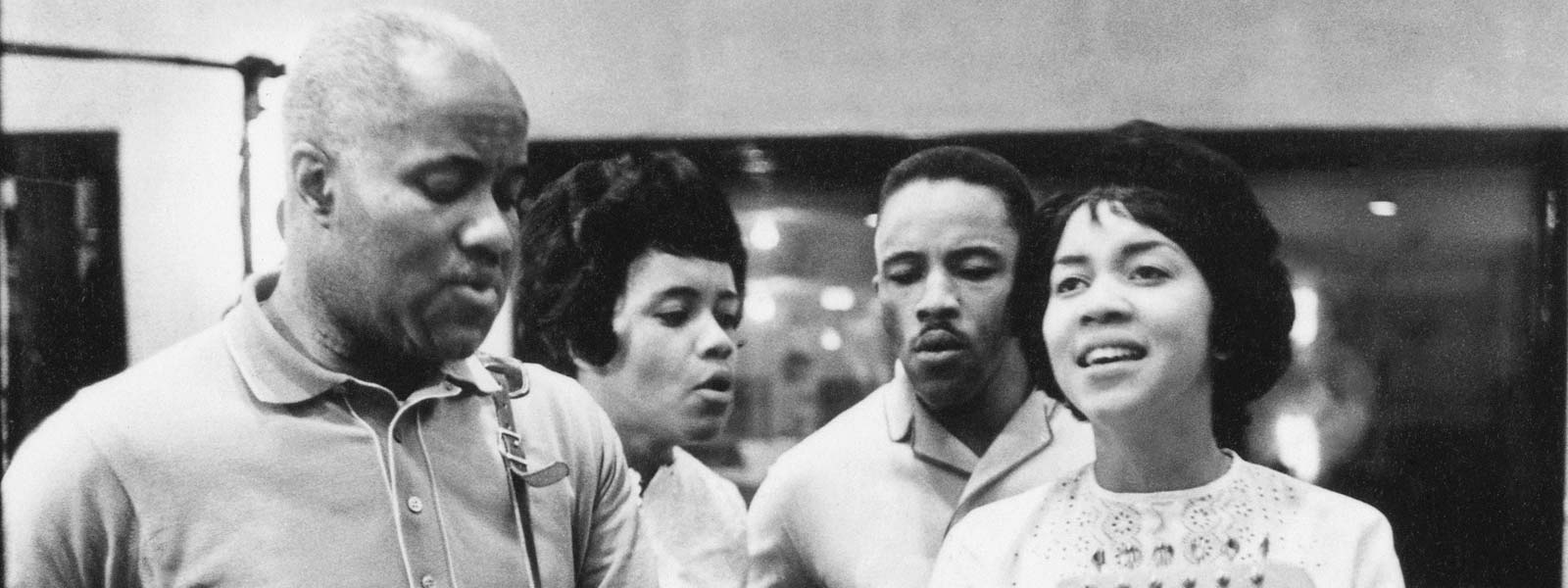My selection for this week’s recommended listening comes from the legendary Staple Singers. The current racial tension and attention to the racial and humanitarian issues that the Black Lives Matter movement has generated here in the United States makes this release rather timely. As we have all heard over and over again “everything old is new again” or “the more things change, the more they stay the same.” History has actually proven over the last several decades that “the more things DON’T change, the more things stay the same.”

Released earlier this year, “Come Go With Me: The Stax Collection” presents all of the group’s studio albums released on the iconic Memphis Stax label, spanning 1968–1974, and features the Staples’ biggest hits, including “I’ll Take You There,” “Respect Yourself” and “If You’re Ready (Come Go With Me).” For those readers who collect vinyl, the six studio albums were cut from the original analog master tapes. The final, seventh disc offers rarities, non-album singles and several live recordings from the legendary 1972 Wattstax music festival. The complete collection was also released digitally, and the six studio albums are available in high-resolution streaming formats for the first time.
Songs With a Message of Empowerment and Racial Equality
By the time that the Staple Singers signed to Stax in 1968, the family quartet — helmed by patriarch Roebuck “Pops” Staples, with daughters Cleotha and Mavis, and son Pervis (later replaced by his sister Yvonne) — had long graduated from the gospel circuit. The Chicago group had become well known in the counterculture and folk scenes and were performing alongside major rock acts like Big Brother and the Holding Company and the Grateful Dead. The Staples had also become formidable voices in the Civil Rights movement, and many of their songs preached a message of empowerment and racial equality.
In the fall of ’68, the group went into the studio to record their first album for Stax, “Soul Folk in Action”, working with producer Steve Cropper (Booker T. and the MGs) and songwriter Homer Banks. The sessions were set against a backdrop of social and political turmoil, which climaxed with the assassination of Dr. Martin Luther King, Jr. in Memphis. The Staple Singers were known for writing politically charged “message songs,” of that time and the year’s events certainly inspired many of the tracks on this album, including “Long Walk to D.C.” and “The Ghetto.” In their liner notes, Levon Williams and Langston Wilkins write that both of these songs “Truly tapped into the experiences and emotions of Black America at the close of the ’60s.” The former is a tribute to the 1963 March on Washington told from the perspective of a poor yet hopeful African American person willing to use their bit of savings to make it to the rally. Conversely, the somber and haunting “The Ghetto” takes listeners deep into the isolation and despair of inner-city life. Also notable to this album are stunning covers of The Band’s “The Weight” and Otis Redding’s “(Sittin’ On) The Dock of the Bay,” recorded in tribute to the fallen Stax star, who died tragically just a year earlier in a plane crash. The Staple Singers returned to the studio with Cropper the following year to record “We’ll Get Over” in 1970. Highlights include the standout message song “When Will We Be Paid,” as well as covers of tracks like Sly & the Family Stone’s “Everyday People” and Gladys Knight & the Pips’ “The End of Our Road.”
Finding Commercial Success
Though both “Soul Folk in Action” and “We’ll Get Over” carried powerful messages and tight-knit harmonies, neither had commercial success. And so, for the band’s third album, Stax co-president Al Bell (who signed the band) took the helm as producer. Williams and Wilkins note that “As a long-time DJ, Bell’s ear for what moves Black listeners, both literally and metaphorically, had been keenly crafted over several years. Bell hosted shows that had both sacred and secular followings and had amassed a wealth of experience from watching, noting and deeply understanding the impact music has on varied audiences. His ear was essentially priceless.”
With support from the Muscle Shoals Rhythm Section (also known as “The Swampers”), the Staple Singers found a winning team with Bell, and the resulting album, 1971’s “The Staple Swingers,” would be their first charting record, peaking at No. 9 on Billboard’s top R&B albums. The LP offered a funkier sound from the group, with high-energy singles like “Heavy Makes You Happy (Sha-Na-Boom Boom)” and the Smokey Robinson cover “You’ve Got to Earn It.”
The group reunited with the Swampers and Bell for 1972’s “Be Altitude: Respect Yourself,” an album that transformed the Staple Singers into mainstream stars. Peaking at No. 19 on the Billboard 200, the groove-filled album featured the Staples’ first No. 1 hit — the infectious “I’ll Take You There,” and “Respect Yourself,” a song which Williams and Wilkins declare “encapsulates the Staple Singers’ entire career.” The powerful message song not only resonated with African Americans but also with many women across the country as they, too, fought for equal opportunity.
Staple Singers’ Tour De Force
The highlight? Pops Staples’ Wattstax performance of the group’s overlooked tour de force “I Like the Things About You,” complete with an extended spoken word monologue from Pops addressed to the massive young black crowd. “I just want to let you know,” he shouts, “we are somebody!”
“I Like The Things About You” shows the Staple Singers at their most potent and self-contained (the song, unlike most of the Staples’ Stax catalog, was co-written by Pops). Originally released in 1971, the R&B original allowed space for the group’s MLK-era idealism while still channeling the burgeoning black power movement of the impending decade.
But today, “I Like the Things About You” also serves as a complicated reminder of the way in which the band continually struggled to channel its civil rights politics into the mainstream. They never toned down their socially conscious storytelling, but songs like “I’ll Take You There” directly addressed racial justice of that time. During the period of their career when they had the greatest access to a pop audience, the Staple Singers never stopped wrestling with how to translate their message into something larger.
For fans mainly familiar with the group’s biggest pop hits, this discography comes as a revelation
The final disc in “Come Go With Me: The Stax Collection” offers a selection of live tracks from the Staple Singers’ energetic performance at Wattstax, as well as B-sides like “Stay With Us,” non-album singles like “Oh La De Da” and rarities that include “Walking in Water Over Our Head” and “Trippin’ On Your Love.”
For fans mainly familiar with the group’s biggest pop hits (“I’ll Take You There,” “Respect Yourself”), hearing the band’s entire Stax discography presented as a whole comes as a revelation. “Come Go With Me” is the sound of a foundational American band exploring its own parameters, broadening their approach while recording incredible music of what that means for themselves. This collection offers the first-ever complete portrait of the group’s most dynamic and, in some ways, most turbulent period. A perfect soundtrack in these current times.










